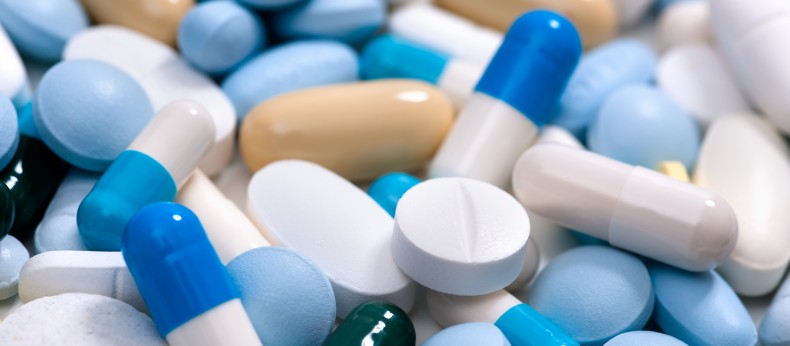
Drug Allergies and Adverse Reactions
Drug reactions happen without warning. Some people break out in rashes while others have difficulty breathing. Still others may experience gastrointestinal reactions. If you have a drug allergy or have experienced any other adverse drug reactions, you likely know what I’m talking about. With the right knowledge, drug allergies can be completely manageable.
Many people confuse drug allergies with adverse drug reactions, and it’s hard to blame them because the two manifest in similar ways. An adverse drug reaction (ADR) is a general term referring to any adverse reaction to a medication. Drug allergies result from a specific immunologic response to a medication. Such responses account for about six to 10 percent of all adverse drug reactions, but up to 10 percent of fatal reactions. When your physician determines the root cause of an adverse drug reaction, he or she can help you determine effective prevention and treatment options. This article will explain the key features of drug allergies including initial symptoms, proper treatment and the key differences between drug allergies and common adverse reactions to medications.
Onset and symptoms
The symptoms of drug allergies are varied and can range from benign, such as a mild skin rash, to a life-threatening emergency. The specific symptoms of the reaction will require a certain type of treatment depending on their severity. Based on World Allergy Organization standards, drug allergies are divided into two broad categories: delayed reaction (onset more than one hour after exposure) and immediate reaction (onset within one hour of exposure).
Delayed reactions
Delayed reactions to medications commonly begin more than six hours after exposure but sometimes occur days after exposure. For example, delayed adverse drug reactions to amoxicillin classically start between 7 to 10 days of exposure and may even begin 1 to 3 days after the patient has stopped taking the medicine.
Delayed reactions may have several different causes (immediate reactions tend to have one cause). It is usually unnecessary to be admitted to a hospital, and severe cases are rare.
Many medications can cause a delayed reaction. Common medications that cause delayed reactions include heparin, quinine, sulfonamides, vancomycin, gold compounds, betalactam antibiotics and non-steroidal anti-inflammatory drugs.
Immediate reactions
An immediate reaction may occur seconds after taking the medication. Most adverse drug reactions occur within one hour of the last administered dose. Reactions that occur within minutes of contact with the medicine usually involved a raised nettle rash and/or swelling of the eyes, lips, or tongue. Common symptoms include difficulty breathing, which may be accompanied by swelling of the throat, wheezing, shortness of breath and coughing.
If any of these symptoms occurs, seek immediate assistance from professional emergency services and alert your family, friends, or colleagues that can help. Fortunately, a simple skin test can determine the presence of drug allergies, especially for the betalactam class of drugs (penicillins and cephalosporins), which can cause fatal allergic reactions.
Treatment for drug allergies
The following medications can be used in the event of an allergic reaction: adrenaline, cortisone, bronchodilator and anti-histamine.
Mild allergic symptoms can be treated at home. For a simple rash or mild swelling of the lips, over-the-counter anti-histamines are an effective treatment. A medicine such as diphenhydramine is usually suitable for pregnant and breastfeeding women. If you are allergic to a topical medicine and only a small part of the skin is experiencing a reaction, topical antihistamine or cortisone cream are both safer than oral medicine for counteracting allergies.
While mild symptoms may be treated in the comfort of your home, more severe allergic reactions need to be treated by a qualified doctor. For such emergencies, adrenaline is usually the drug of choice. Adrenaline should be administered in a hospital unless the patient has a ready-to-use product and has received proper training in its usage. As a back-up measure, United Family Healthcare (UFH) facilities keep a stock of adrenaline anaphylactic kits that are commonly given to individuals who have severe allergies. Our pharmacists can teach patients how to use these kits.
Advice for people who are prone to drug allergies
Once a drug allergy has been identified, the affected person should be educated about avoidance. United Family keeps medical records on behalf of each patient on a unified system that is accessible throughout all UFH China facilities. UFH creates alerts in the system to notify all medical staff about any potential adverse drug reactions a patient might possibly experience. Additionally, we can provide patients who have experienced adverse drug reactions with a written list of the generic and brand names of the problematic drugs, including any cross-reactive drugs. Patients with potentially severe reactions should always carry an easily accessible note explaining their allergies.
Copyright United Family Healthcare 2014 All right reserved - 京卫网审[2014]第1927号 - 京ICP备13017554号-4



